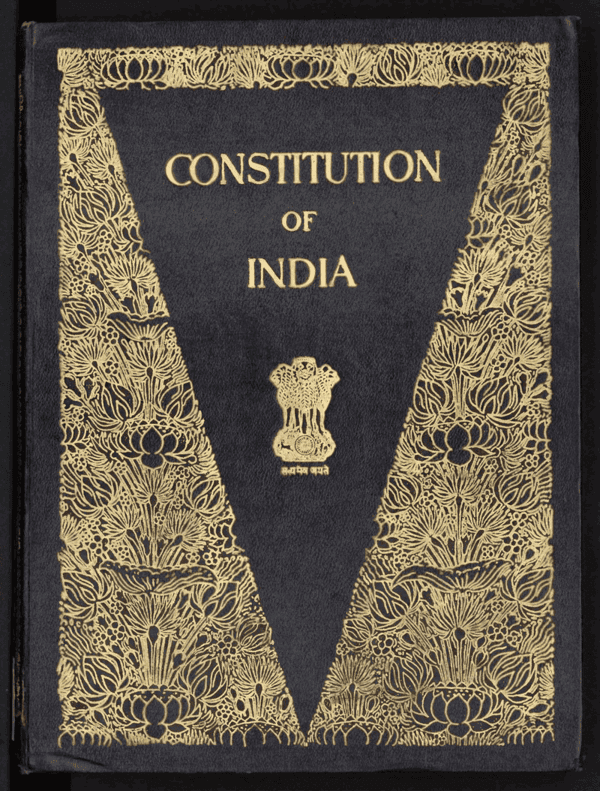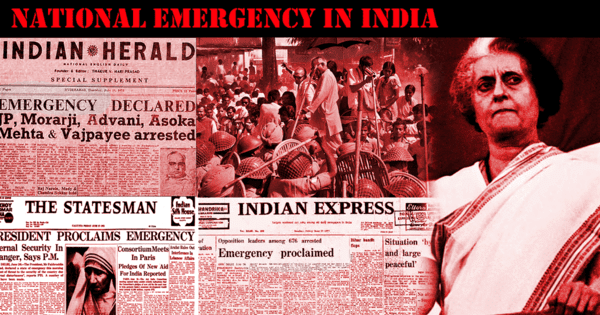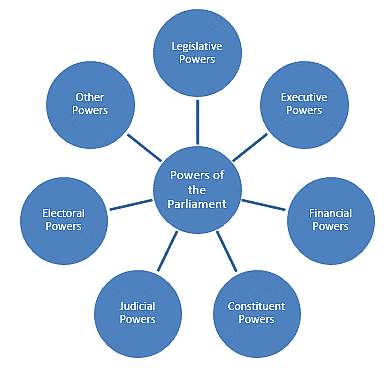|
The Indian Constitution allows for a temporary transition from a federal to a ___ system during emergencies. |
Card: 1 / 40 |
|
True or False: The transformation to a unitary system during emergencies is a permanent change in the Indian constitutional framework. |
Card: 3 / 40 |
|
How does the Indian Constitution ensure adaptability in governance during crises? |
Card: 5 / 40 |
|
By allowing the Central government to take on more authority and restructure the federal system into a unitary framework during emergencies. |
Card: 6 / 40 |
|
True or False: President's Rule is referred to as 'National Emergency' in the Constitution. |
Card: 9 / 40 |
|
False. President's Rule is also known as 'State Emergency' or 'Constitutional Emergency'. 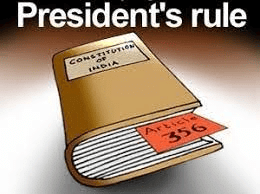 |
Card: 10 / 40 |
|
What is the maximum duration for which a National Emergency can be extended without Parliamentary approval? |
Card: 11 / 40 |
|
Six months, with further extensions requiring Parliamentary approval every six months. |
Card: 12 / 40 |
|
True or False: The President can revoke a proclamation of emergency without any parliamentary approval. |
Card: 13 / 40 |
|
Fill in the blank: The Financial Emergency can be declared under Article ___ in response to a threat to India's ___ or credit. |
Card: 15 / 40 |
|
During a National Emergency, the Centre can exercise complete control over states through which type of power? |
Card: 17 / 40 |
|
The Parliament's power to legislate on State List subjects during a National Emergency results in laws made on these subjects becoming inoperative after how many months post-emergency? |
Card: 19 / 40 |
 Unlock all Flashcards with EduRev Infinity Plan Starting from @ ₹99 only
|
|
True or False: The President can modify the financial distribution between Centre and states during a National Emergency without oversight. |
Card: 21 / 40 |
|
False. The President's orders modifying financial distribution must be laid before both Houses of Parliament. |
Card: 22 / 40 |
|
What power does the President hold regarding ordinances during a National Emergency? |
Card: 23 / 40 |
|
The President can issue ordinances on state subjects if Parliament is not in session. |
Card: 24 / 40 |
|
True or False: State legislatures are completely dissolved during a National Emergency. |
Card: 25 / 40 |
|
False. State legislatures continue but are subject to Parliament's overriding power. |
Card: 26 / 40 |
|
What happens to laws made by Parliament on state subjects once the National Emergency ends? |
Card: 27 / 40 |
|
True or False: Article 358 allows for the suspension of all Fundamental Rights during a National Emergency. |
Card: 29 / 40 |
|
False; Article 358 specifically suspends only the Fundamental Rights guaranteed by Article 19. 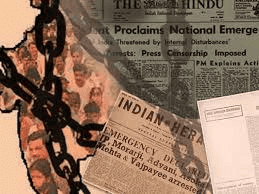 |
Card: 30 / 40 |
|
The normal tenure of a State Assembly can be extended by ___ during a National Emergency. |
Card: 31 / 40 |
|
It narrowed the scope of Article 358 to apply only during a National Emergency declared due to war or external aggression, not armed rebellion. |
Card: 34 / 40 |
|
Short Answer: What happens to laws or actions inconsistent with Article 19 during a National Emergency? |
Card: 35 / 40 |
|
True or False: Fundamental Rights under Article 19 automatically revive after the Emergency ends, but there is no remedy for actions taken during the Emergency. |
Card: 37 / 40 |
|
Article 359 of the Indian Constitution allows the President to suspend the right to move any court for the enforcement of Fundamental Rights during a National Emergency. True or False? |
Card: 39 / 40 |
|
True. Article 359 authorizes the President to suspend the enforcement of Fundamental Rights during a National Emergency. |
Card: 40 / 40 |





